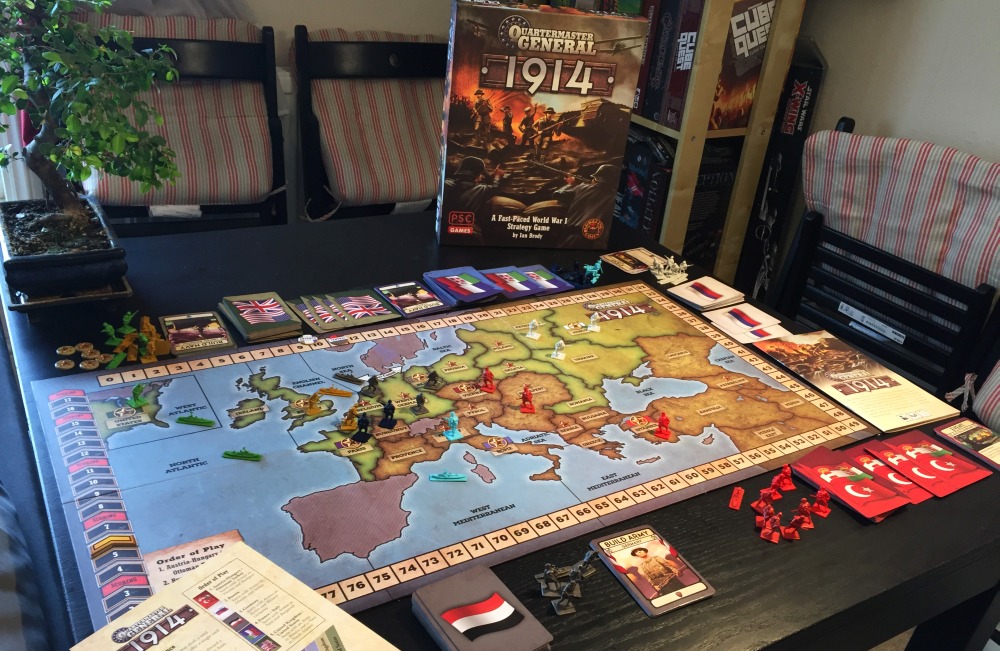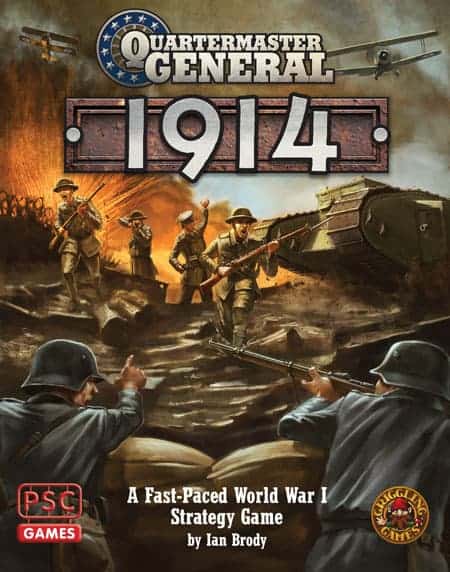Quinns: It can be lonely reviewing games by yourself. Matt and Paul might be at the Game Developer’s Conference, but I have a solution!
Matt’s head made from papier-mâché: that’s because you’re great quinns
Quinns: Ha ha, you flatter me! Let’s get down to business, Matt.
Matt’s head made from papier-mâché: i love business
Quinns: Today we’re reviewing Quartermaster General 1914, the third (and most highly-rated) entry in the Quartermaster General series. Like Memoir ‘44, these games might look like stodgy wargames, but don’t be fooled! 1914 is a tricky, playful card game that lets you get stuck into the drama and anxiety of WAR without having to measure any distances or frown at charts.
Now, our site has said over and over again that there aren’t enough team-based board games –
Matt’s head made from papier-mâché: oh goodness no, nowhere near enough
Quinns: Don’t speak, you’re getting flakes of glue on the table. So team play is exactly what the Quartermaster General series is all about. In our case, 1914 is a five player game where three frail players take on two wealthy ones. It’s a tremendously exciting hook, and we’re just getting started.


